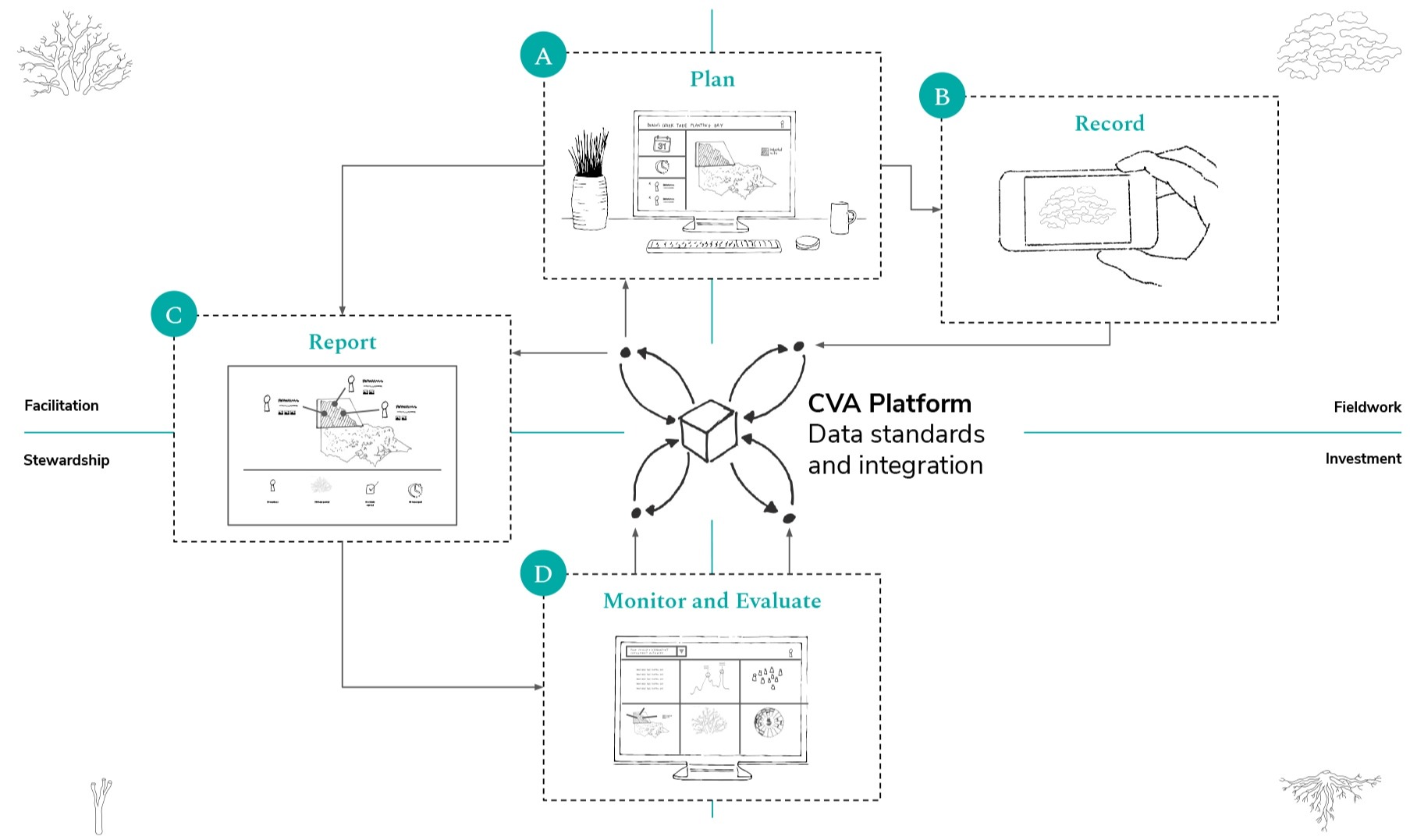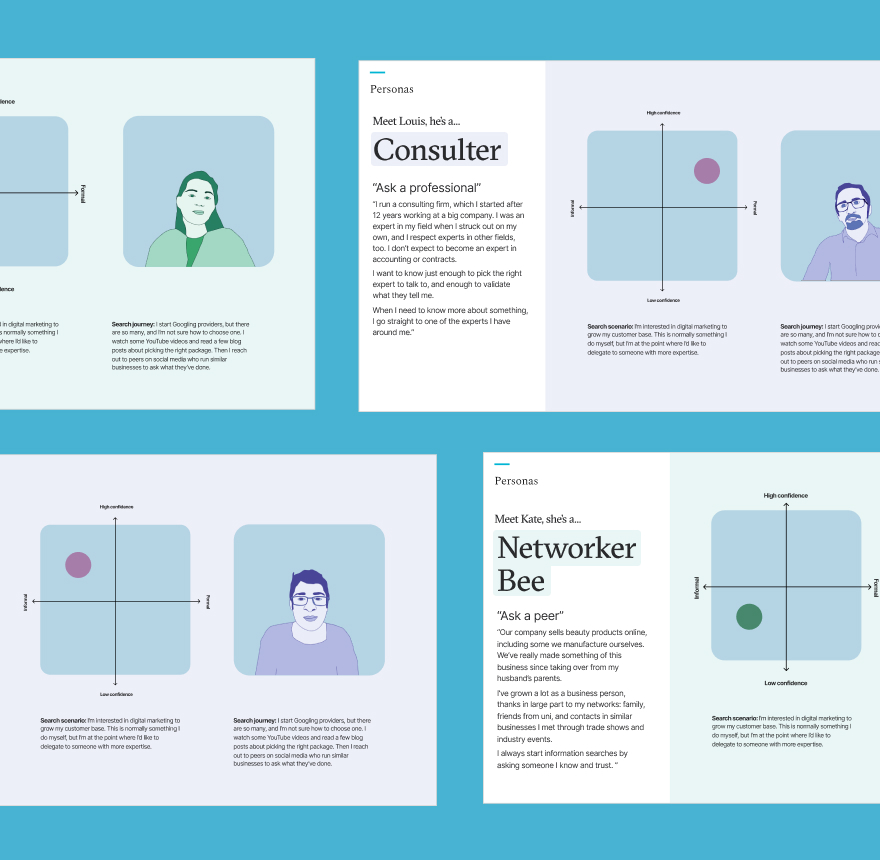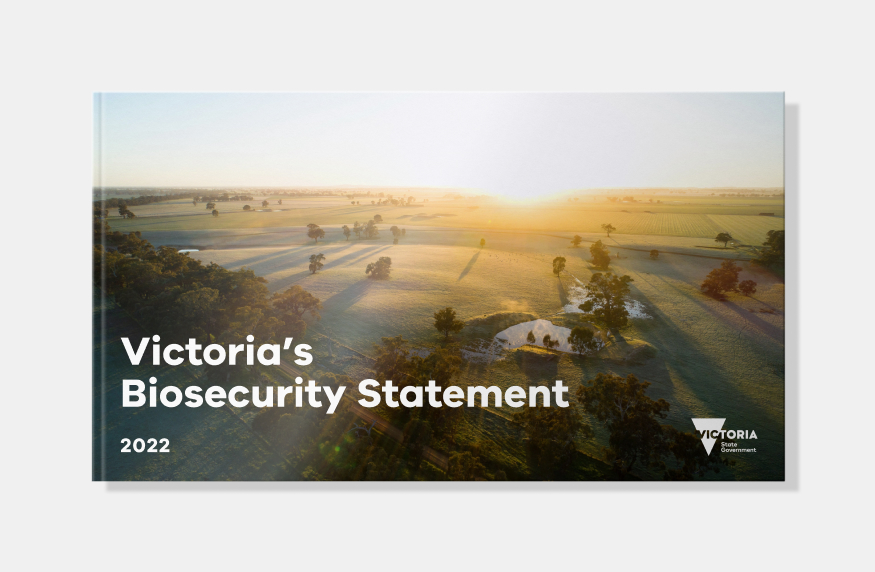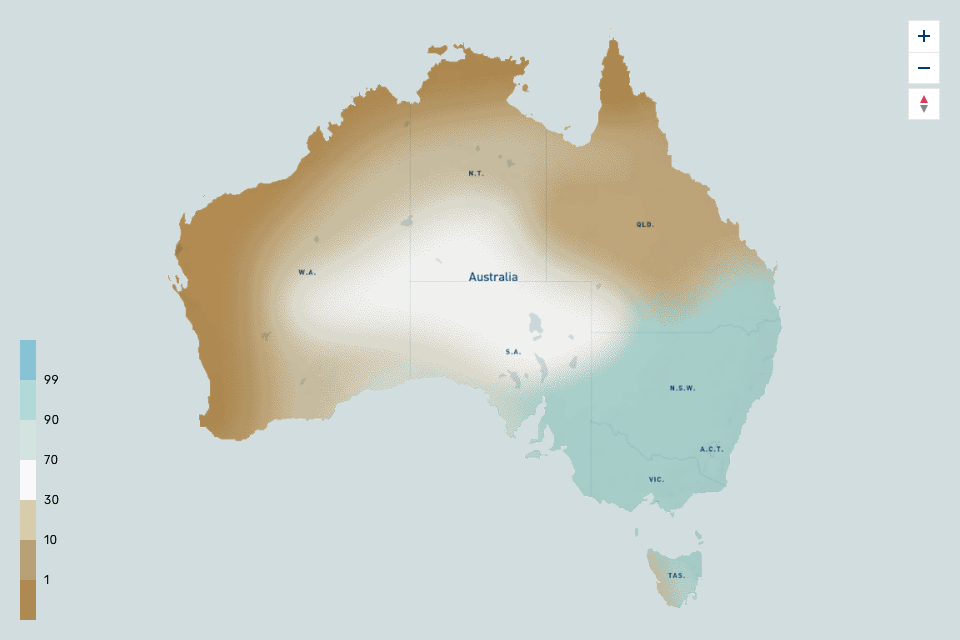Conservation Volunteers Australia
Collecting data and knowledge to improve conservation in Australia
Paper Giant helped develop a Minimum Viable Platform (MVP) to enable better data sharing and effective collaboration between diverse stakeholders undertaking conservation work across Australia.
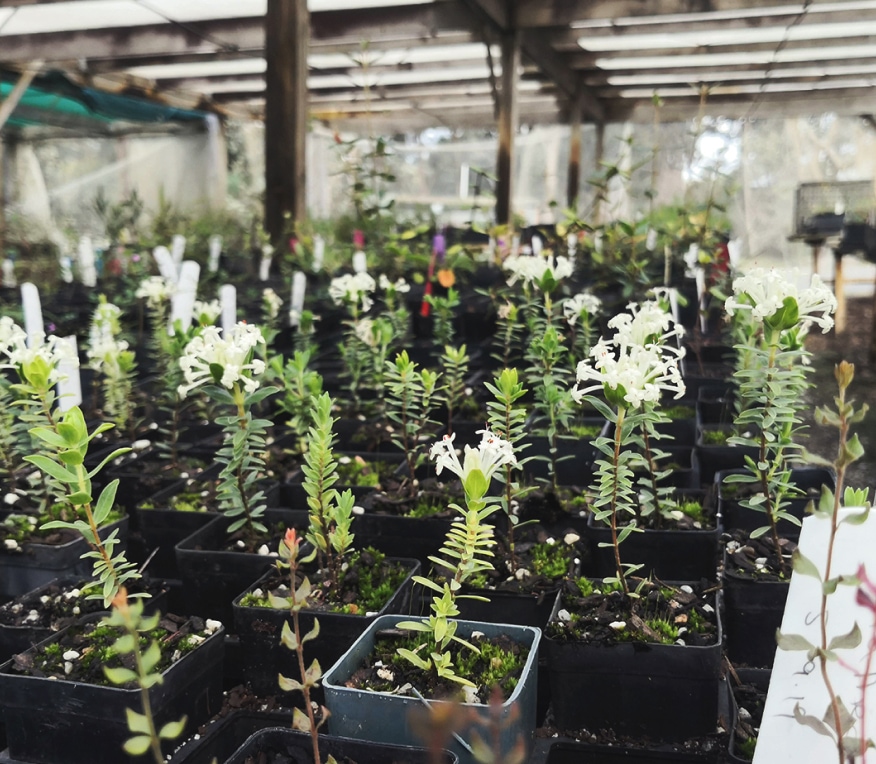
Outcomes
A set of life stories that explain the different modes of landcare work in Australia
An MVP approach to guide the development of a new data platform
A prioritised set of features that can be utilised to develop future releases and improvements
Services
- Social innovation
- Product strategy
- MVP design
- UX and UI design
Sectors
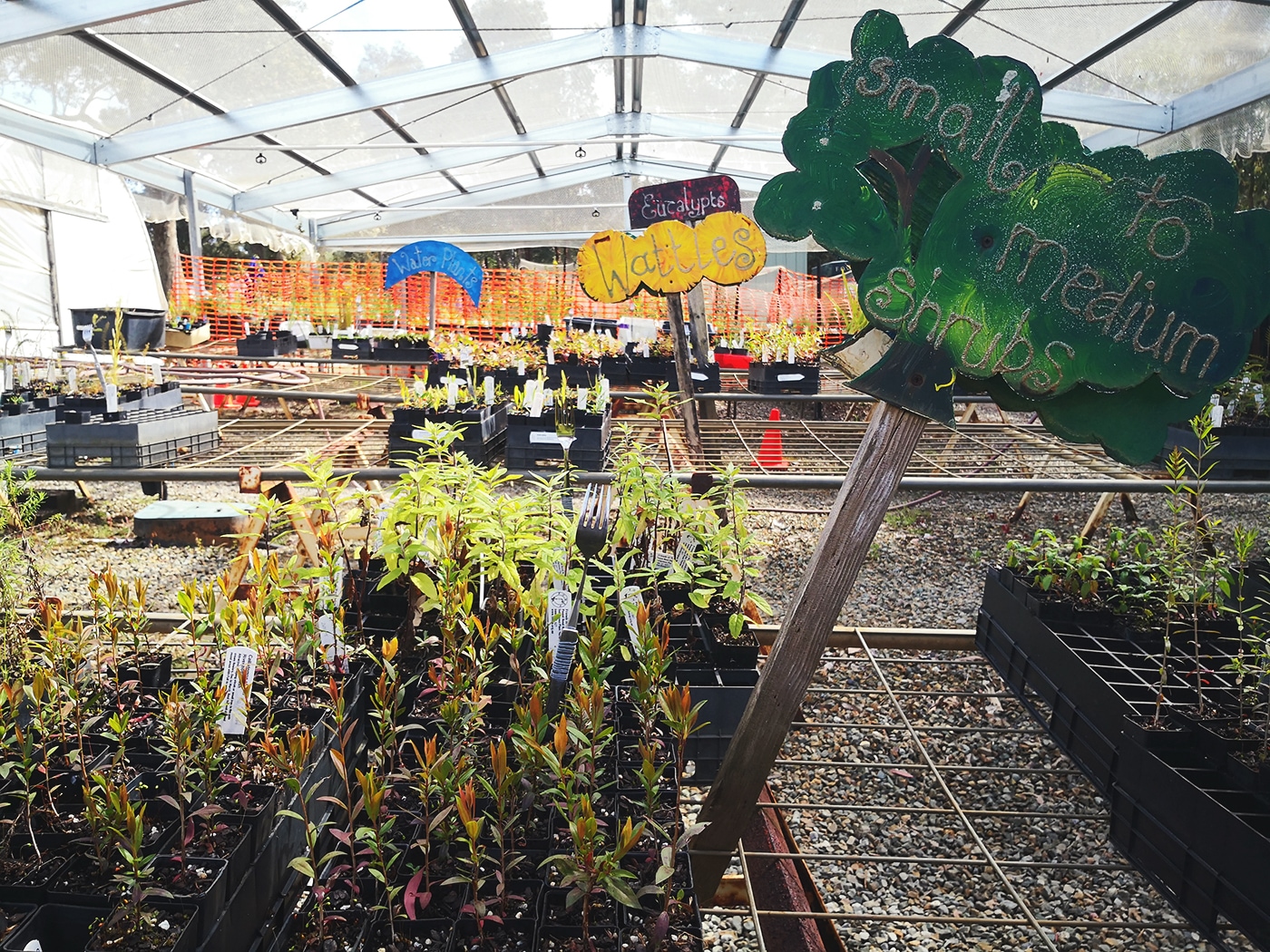
A complex ecosystem
Conservation Volunteers Australia (CVA) manages thousands of volunteers across Australia on projects such as wildlife protection, community gardens, wetlands rehabilitation, and bushfire recovery. With such a wide range of activities, it can be a challenge to capture learnings and outcomes in a consistent and shareable way.
As a nationwide organisation, CVA is uniquely positioned in Australia’s large, complex and dynamic landcare and conservation system to create a data-sharing platform that can capture the fieldwork in real time so project efforts and achievements are more visible to the grants bodies that support them.
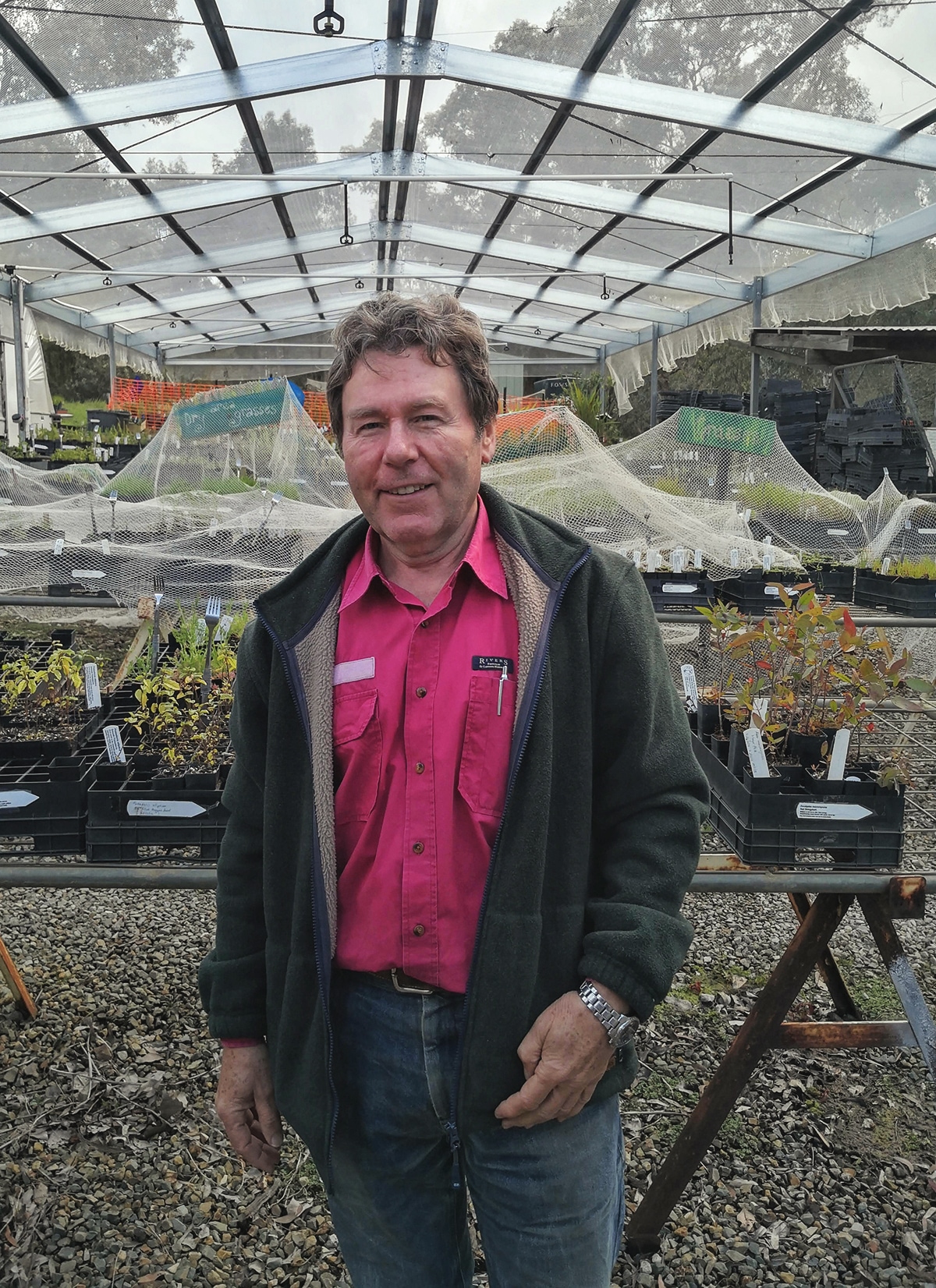
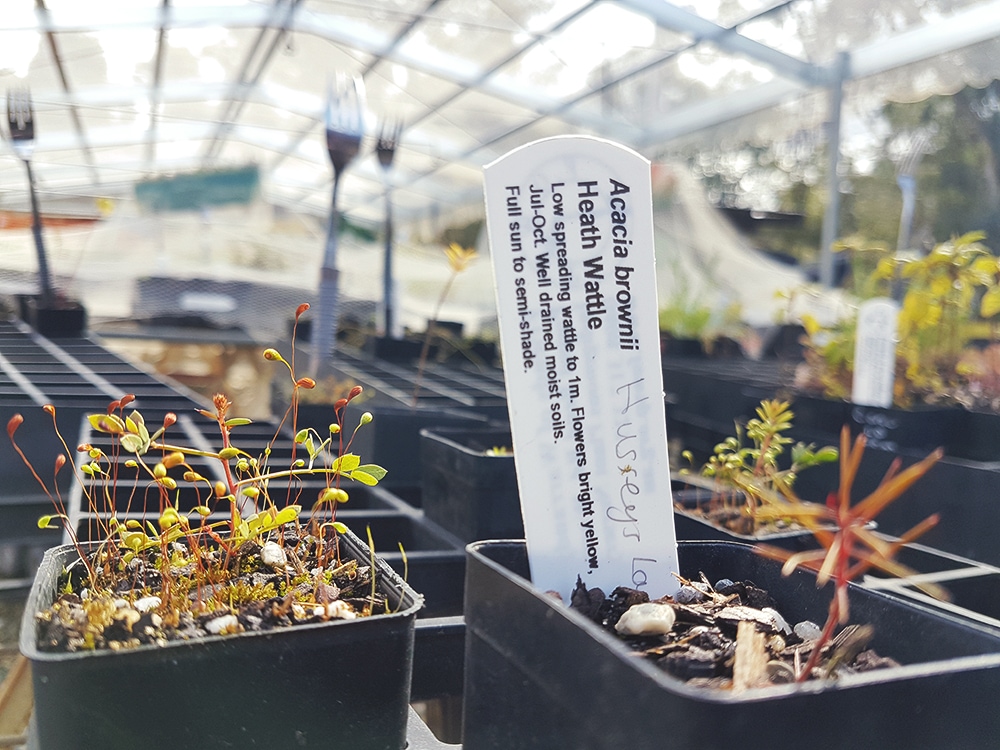
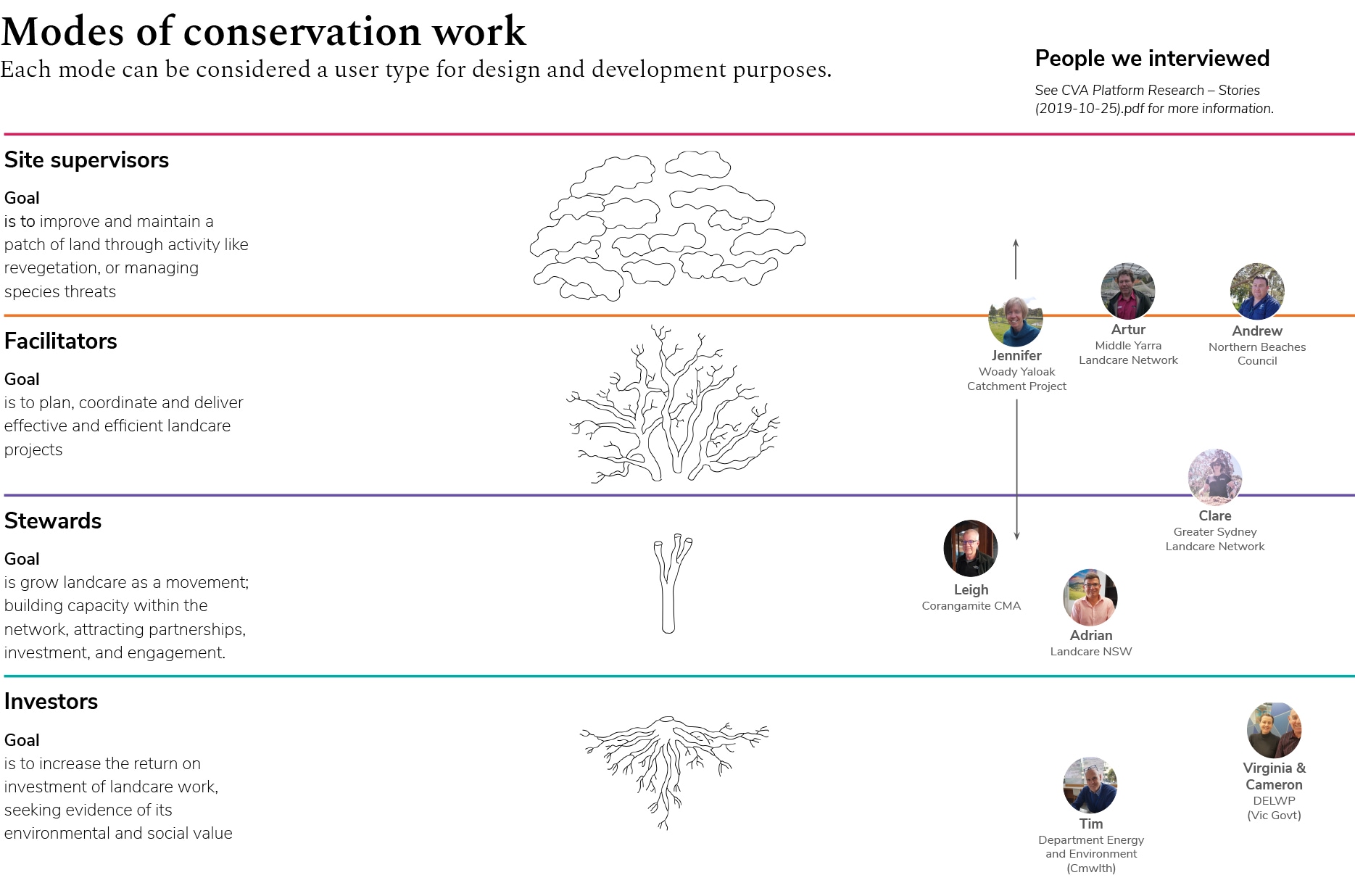
Different modes, different needs
Over 7 weeks Paper Giant interviewed three CVA stakeholders and eight people involved in planning, delivering and investing in conservation and landcare projects in Victoria and NSW.
We discovered four different modes of doing conservation work – fieldwork, facilitation, stewardship, and investment – and explored the unique needs of each mode.
This understanding was framed into a set of life stories that demonstrate how different organisations, processes, tools and technologies enable or inhibit information and data sharing throughout landcare networks.
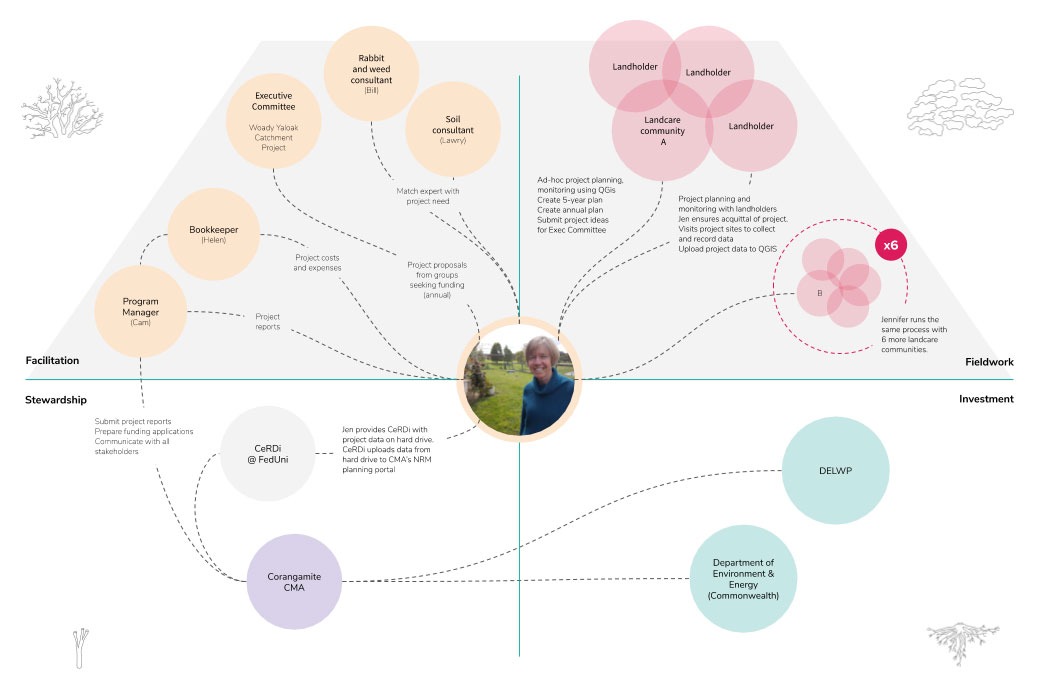
One platform
We drew upon the research to outline a vision for a digital platform, including recommendations for platform validation and market launch that deliver for each landcare mode:
Facilitation: More efficient, streamlined processes improve ease of planning and reporting tasks
Stewardship: A rich picture of field activities and impact drives business and funding decisions
Fieldwork: Volunteers are able to focus on delivering quality outcomes. They capture stories and observations as they happen; less focus on onerous compliance reporting
Investment: Highly responsive investment strategies are more attuned to needs of people on the ground
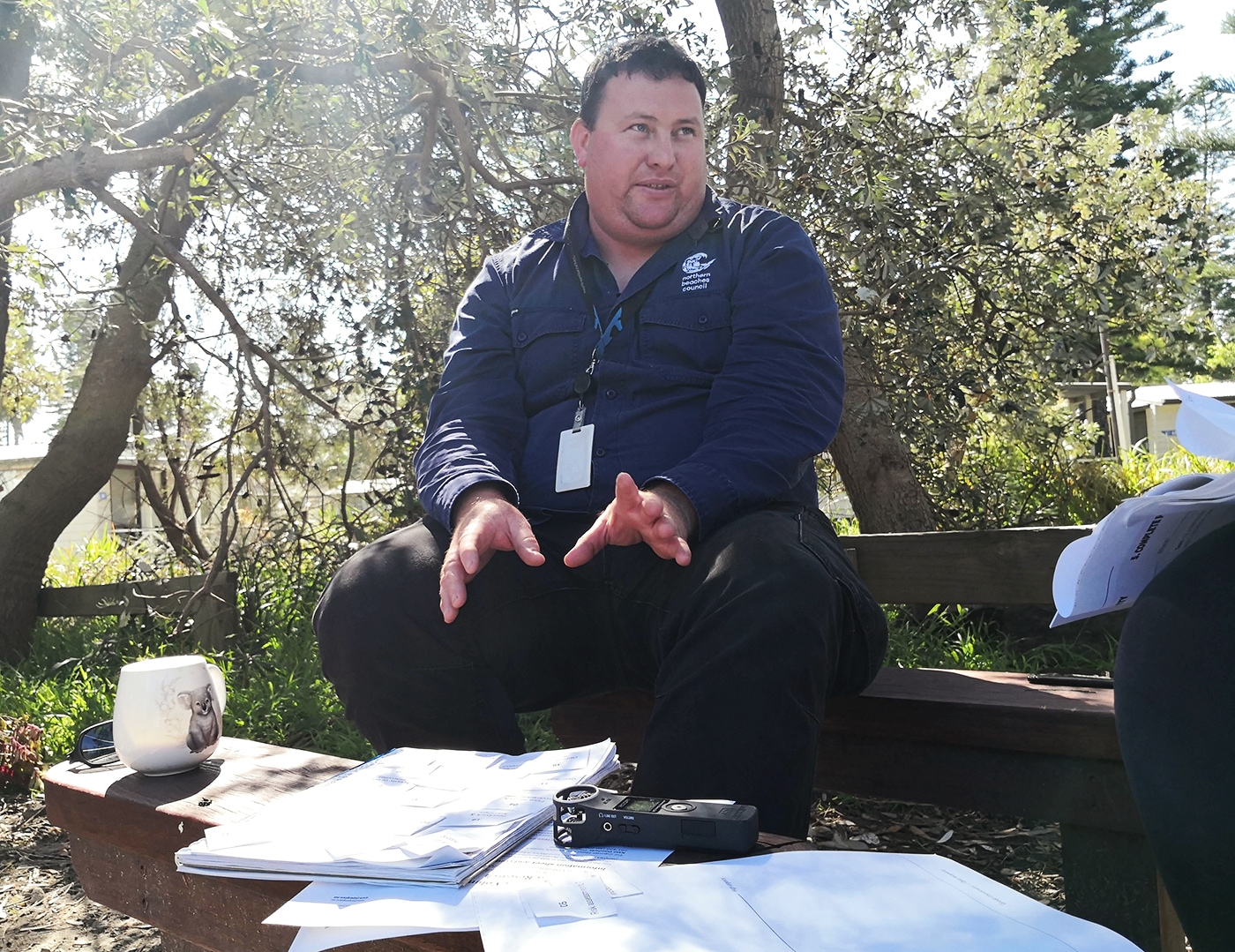
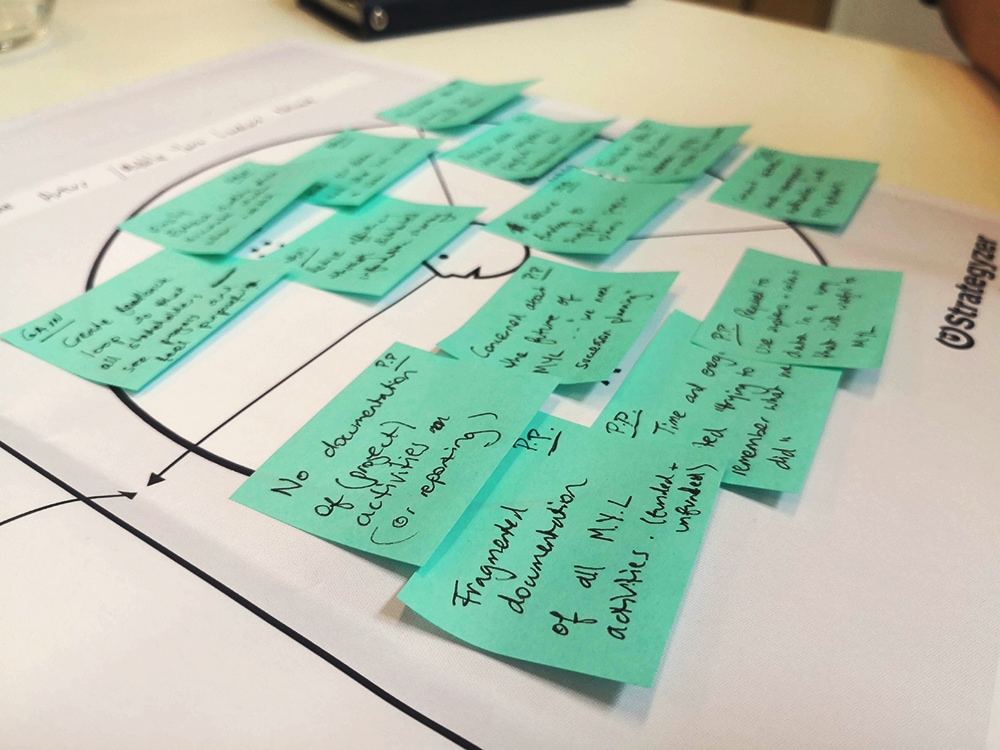
Removing data friction
The existing system had multiple points of friction. Interactions and information flows were messy and cumbersome. The new platform enables more direct and faster information exchanges between relevant stakeholders.
Previously, people worked in their own ‘bubbles’, causing disconnection and lack of trust. There was a lack of cohesion across the network. Using the new platform, stakeholders can understand how every other stakeholder affects the health and productivity of land, across time.
There was a lack of shared understanding across the networks. Intentions and meanings could be misunderstood. The new platform provides a common language for all stakeholders.
